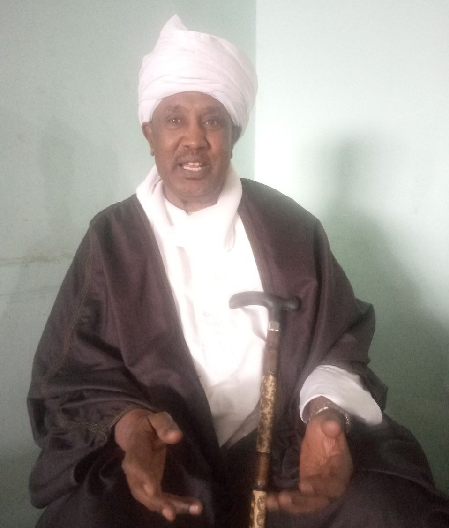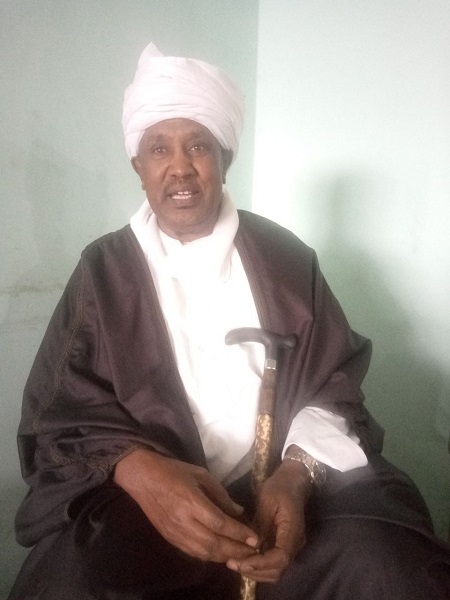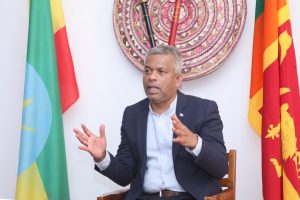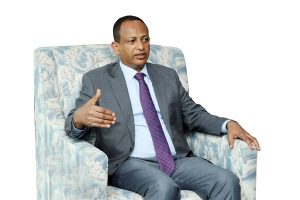
– Khaled Karam
Ethio–Sudanese relations, refer to the bilateral relationship between the Federal Democratic Republic of Ethiopia (FDRE) and the Republic of Sudan (RoS), have had a very long history dated back to, the ancient times of Axum and Meroe.
The history of Ethiopia and Sudanese relations exhibits an age-old political, economic, social and cultural bond. Apart from their relations as neighbors, Ethiopia and Sudan have many common features. Some ethnic group like Berta and Gumuz live in both Ethiopia and Sudan along the border areas. Tributary rivers like Atbara, Blue Nile (Abay) flow to Sudan from the highlands of Ethiopia.
However, despite the long history, the commonalties that beget age-old bond had never yielded progress and fraternal relations to the people of the two nations. In the modern history, in particular, the last king of the Solomonic Dynasty, Emperor Haile Selassie and the military Dergue regime’s foreign policy and strategies, which took Ethiopia’s neighbors as historic enemies, failed to nurture the historic relation between the two nations.
Worse still, the siege-mentality that sprang from the view that considers our neighbors as opponents, forced the two countries into a destructive policy of harboring and supporting the other’s rebels until the downfall of the Derg regime in 1991..
Conversely, after the downfall of the Dergue regime, Ethiopia saw a paradigm shift in its foreign policy approach. Militarism and siege-mentality driven foreign relation was replaced by a forward-looking policy that upholds a win-win approach and mutual benefit. As a result, since 1991, Ethiopia has given due attention and prime focus to engagement with its neighbor countries, Africa as a continent, and South-South cooperation in general.
As stated in the current Ethiopian foreign and national security document, Ethiopia places utmost consideration to working closely with its neighboring nations to promote trade, investment, development, and infrastructure with a view to hasten economic integration.
Due to this policy shift, Ethiopia and Sudan’s bilateral relation has seen dramatic change. Over the past years in particular, the two sisterly nations were working together to elevate their relation in bilateral, regional, continental and international levels.
In recent years, the cooperation has taken the form of increased volume of trade and flow of foreign direct investment.
The deep-rooted, cultural, and historical people-to-people relations between Ethiopia and Sudan and emphasized the need to strengthen with further engagements. It was recalled that Ethiopia and Sudanese Public Diplomacy delegation visited the two countries in different times and expressed their readiness to strengthen bilateral ties between the two countries.
The peoples of Ethiopia and Sudan are one with deep-rooted historical and cultural ties. The Sudanese Public Diplomacy Delegations’ visit to Ethiopia in November 2019 was successful. Due to COVID and war ignited in Sudan, the strong people to people ties backed to former stage. However, as the two people should not be isolated in war and peace times, undertaking activities that further enhances the people-to-people relations between the two countries is quite imperative. Both sides stressed the importance of cooperation in organizing various events that further enhance relations between the people of Ethiopia and Sudan.
Recently, the Sudanese Embassy together with Sudanese Community in Ethiopia celebrated the 68th anniversary of Sudan’s Independence Day at the Sudanese community headquarters in Addis Ababa.
In connection with the 68th anniversary of Sudan’s Independence Day, The Ethiopian Herald spent a short time with Khaled Karam who is president of Sudanese community in Ethiopia to know more about people to people ties and other political economic and cultural issues. Have a nice read!

Would you please explain about the exhibition organized to mark the Sudanese Independence Day?
The exhibition was inaugurated by the Sudanese Ambassador to Ethiopia, Ambassador Jamal Al-Sheikh, who praised the celebration and the exhibition. I considered it as a link for Sudanese residing in Ethiopia.
Although the celebration comes at a time when our country Sudan is in complex and painful situation, organizing various events are necessary to create communication between the Ethiopian and Sudanese peoples.
Ambassador Jamal Al-Sheikh praised the progressive relations between Ethiopia and Sudan, and expressed gratitude to the people and government of Ethiopia for the peace process and support to host the Sudanese Independence Day on its territory.
This year’s celebration is completely different from previous one as Sudan is going through very thorny circumstances due to the ongoing war between two warring parties.
Many Sudanese people have left their home towns and taken refuge to other places in the east Africa region including neighboring Ethiopia. Presently, Ethiopia became a shelter for more than twelve thousand Sudanese displaced people including women and children. This years’ Independence Day was marked with their presence.
In a three day-long celebration, Sudanese agricultural and manufacturing sectors were displayed. A free medical treatment laboratory and other services had been provided to the people displaced from Sudan as a result of prolonged war. The exhibition reflects traditional costumes, cultural foods and drinks.
Allow me to praise Ethiopians who are welcoming and hosting the Sudanese people who were displaced from Sudan due to the enduring war. The displaced people of Sudan here feel like they are residing in their home country.
The Sudanese communities who are legally registered to reside in Ethiopia are also now helping the displaced Sudanese. Accordingly, the displaced people have obtained various treatments including food, shelter, and flight tickets for those who wish to return to Sudan.
A committee drawn from the Sudanese community is now addressing problems that the displaced Sudanese have encountered. The Ethiopian government as usual has stood by the Sudanese community to resolve the challenges the displaced people are facing.
As neighboring countries that share long borders, Ethiopia and Sudan have immense investment opportunities. Would you tell us Sudanese investors’ engagement in Ethiopia?
Ethiopia has very attractive investment potentials. That is the pushing factor for many Sudanese to invest in Ethiopia. Following the prolonged war in Sudan, commercial and investment activities in Sudan have congested. As a result, many Sudanese investors are rushing to Ethiopia to engage in various industries. This has opened new doors for them to invest in Ethiopia.
The Ethiopian Investment Commission welcomes every foreign investor and provides all facilities. The community met Ethiopian Investment Commission Commissioner in order to solve the challenges that these Sudanese investors are facing.
Sudanese investors are now engaged in various sectors. Service sector is one of the areas that many of them are involved in. Construction, hospitals, universities, tourism, and well developing are some of the service sector most Sudanese investors engaged in. Agriculture, pharmaceutical industry, and mineral extraction in Benishangul, the southern Ethiopia and Tigray are other areas of interest for Sudanese investors.
The construction of Abbay Dam (GERD) is one of the imperative issues that connect the two countries? How can the dam serve the interest of the two peoples?
Essentially, the two countries are closely linked by the Nile River, and this has given them a historical importance and unity that reinforces their praiseworthy roles in the Horn of Africa. Because of this, they worked together on issues that involved mutual benefits.
Since they have been discussing possible ways in which they can benefit from the Nile River, and have also addressed boundary issues and disputes through dialogue and negotiations, they should deal with the current irregularities through discussion without involving outside parties.
Building the Renaissance Dam will bring great benefit for both of us as it will provide electricity in large quantities.
Ethiopia can use the port of Bashayer on the Red Sea in order to import its goods, and that Sudan can provide a sea port for Ethiopia on the Red Sea as it will make both countries beneficial. Ethiopia can export its products from Gondar, Bahir Dar, Matema and Humera via the Red Sea through Port Sudan.
How do you see Ethiopia’s peace brokering role to normalize the situation in neighboring Sudan?
Ethiopia can play a major role in promoting peace in Sudan as it took part in the past. A committee, that was formed by Prime Minister Abiy Ahmed (PhD) and led by Ambassador Mahmoud Dirir, was the main reason for the coalition and unity of the Sudanese rival forces.
As it has great acceptance among the Sudanese people, Ethiopia can again play major role to resolve the problem that presently exists in Sudan.
Ethiopia is a peace-loving country and the Prime Minister Abiy Ahmed, who won the Nobel Peace Prize, can once again play a role in bringing peace to Sudan and reconcile the warring parties in Sudan.
What would you like to say about any possible cooperation between East African countries to ensure peace, security and development in the region?
Realizing the importance of peace and stability for the Sudanese people, Ethiopia took initiative and played noteworthy roles towards bringing peace to Sudan. This is because Ethiopians are well aware that without peace and stability in Sudan there is no peace and stability in Ethiopia.
Most importantly, Ethiopia’s roles in mediating between the warring parties during the transitional period cannot be forgotten among the Sudanese people. These contacts between the two countries not only renewed the long-standing harmony and inseparable ties between the two countries, but also strengthened bilateral relations.
The people-to-people ties have enabled the creation of cultural and social interconnectedness and the establishment of friendly bilateral relations. Being two countries in the turbulent Horn of Africa region, they have played important roles in ensuring sustainable peace and stability across the region.
Countries in the East Africa region have the opportunity and capability to build strong economy. For that purpose, countries should enhance bilateral cooperation, economic integration in the political, economic and cultural spheres. Above all, horn countries must cooperate in areas such as agriculture, medicine, mineral exploration among others.
If the African countries, especially horn countries collaborating one another, they will not require the assistance of others to come out of the vicious cycle of poverty. The east Africa region is known for its abundant natural resources. Having the fertile land, cross Boundary Rivers, a great number of human powers, it is shameful for countries in the east Africa region to recurrently hit by the drought.
We are not developing the resource in our hand. If you take the Ethiopian Grand Renaissance Dam will provide electricity for neighboring countries so as to promote investment in the region.
Recently leaders of the two Sudanese warring sides have held talks with Prime Minster Abiy Ahmed. What do you expect from that?
As I repeatedly said, Ethiopia has been playing a major role in receiving the two warring parties so as to reconcile the problem. In order to broker peace between the two warring parties, hearing the opinion of each party is quite imperative to reconcile the dispute.
Prime Minister Abiy Ahmed’s meeting with the Chairman of the Transitional Sovereignty Council, Lieutenant General Abdel Fattah Al-Burhan, and the Commander of the Rapid Support Forces, Lieutenant General Muhammad Hamdan Dagalo, is considered an initiative to listen both parties in order to find a solution to the dispute and ensure peace to Sudan.
Ethiopia and Sudan not only share a relatively long border, but also inseparably intertwined cultural, social and economic values.
Their mutual respect and deep friendship had a positive impact on neighboring countries. Whenever necessary, they addressed national and regional issues wisely.
In short, both the Ethiopian and Sudanese people share similar social, economic and cultural values that bind them inseparably to each other and no third party can disturb the close relations between them.
Thanks you for your time.
It is my pleasure.
BY GIRMACHEW GASHAW
THE ETHIOPIAN HERALD SATURDAY 6 JANUARY 2024




